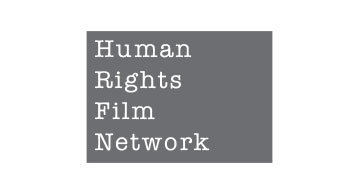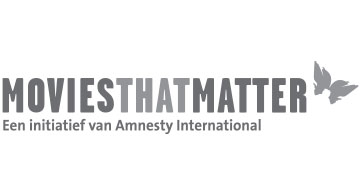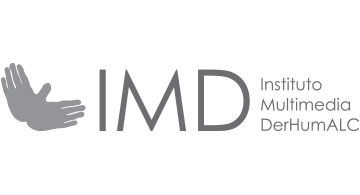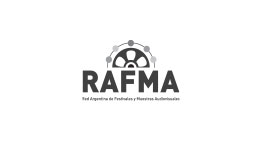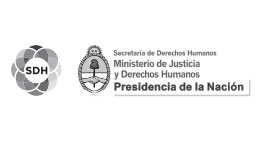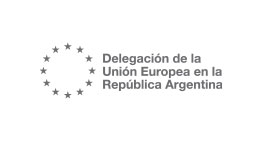Cómo organizar un festival de cine con compromiso social: Un manual para organizadores de eventos cinematográficos de derechos humanos y medio ambiente.
Hacer un festival de cine no es fácil. Intervienen muchos factores, algunos de ellos incontrolables. Hay estrés, tiempos cortos y, muchas veces, presupuestos escasos. Hay muchas personas involucradas, y la dinámica de un equipo no siempre funciona como uno desearía.
Hacer un festival de cine de derechos humanos es incluso más difícil. Los inconvenientes tienen matices según el lugar, desde el desinterés del público o de las instituciones hasta graves casos de censura y persecución.
Pero hacer un festival de cine de derechos humanos es una de las tareas más gratificantes. El placer de descubrir películas que aportan miradas únicas sobre los temas que queremos tratar; la satisfacción de conseguir, luego de largas negociaciones, autorización para proyectarlas; el vértigo frente a una grilla de programación, que es como armar un rompecabezas gigante; la alegría de presentar a un realizador y el enriquecimiento colectivo que surge de ese encuentro. Todo eso justifica las penurias del trabajo de montar ese tren a toda marcha que llamamos festival.
Y de esto habla este volumen que adapta del inglés dos manuales (“Setting Up a Human Rights Film Festival”, vol. 1 y vol. 2) publicados por la Human Rights Film Network. Traducir, editar y publicar este libro en español ha sido un proyecto soñado desde 2010, y concretado ahora gracias al impulso y la colaboración de la HRFN, el IMD y MoviesthatMatter. No menos importante es haber tenido la libertad de sumar en esta edición una mirada latinoamericana y la perspectiva medioambiental, que consideramos vital sea incorporada en el discurso de los derechos humanos, con nuevos casos de estudio escritos especialmente. Es la intención que circule ampliamente en la región, ofreciendo saberes, soluciones e inspiración a los festivales, eventos e instituciones latinoamericanos que trabajan por la difusión y defensa de los derechos humanos.
Hacer un festival de cine de derechos humanos es incluso más difícil. Los inconvenientes tienen matices según el lugar, desde el desinterés del público o de las instituciones hasta graves casos de censura y persecución.
Pero hacer un festival de cine de derechos humanos es una de las tareas más gratificantes. El placer de descubrir películas que aportan miradas únicas sobre los temas que queremos tratar; la satisfacción de conseguir, luego de largas negociaciones, autorización para proyectarlas; el vértigo frente a una grilla de programación, que es como armar un rompecabezas gigante; la alegría de presentar a un realizador y el enriquecimiento colectivo que surge de ese encuentro. Todo eso justifica las penurias del trabajo de montar ese tren a toda marcha que llamamos festival.
Y de esto habla este volumen que adapta del inglés dos manuales (“Setting Up a Human Rights Film Festival”, vol. 1 y vol. 2) publicados por la Human Rights Film Network. Traducir, editar y publicar este libro en español ha sido un proyecto soñado desde 2010, y concretado ahora gracias al impulso y la colaboración de la HRFN, el IMD y MoviesthatMatter. No menos importante es haber tenido la libertad de sumar en esta edición una mirada latinoamericana y la perspectiva medioambiental, que consideramos vital sea incorporada en el discurso de los derechos humanos, con nuevos casos de estudio escritos especialmente. Es la intención que circule ampliamente en la región, ofreciendo saberes, soluciones e inspiración a los festivales, eventos e instituciones latinoamericanos que trabajan por la difusión y defensa de los derechos humanos.
How to organize a socially engaged film festival. A guide for human rights and environmental film event planners.
Holding a film festival is not easy. Several factors come into play, some of them uncontrollable. There is stress, short times and, more often than not, tight budgets. There are many people involved, and team dynamics not always works as expected.
Holding a human rights film festival is even more difficult. Inconveniences vary slightly according to the place, ranging from the audience or institutions' indifference to serious cases of censorship and persecution.
But holding a human rights film festival is one of the most gratifying tasks there are. The pleasure of finding out films which provide unique views about issues that we want to discuss; the satisfaction of earning, after long negotiations, the authorization to screen them; the vertigo in the face of a program grid, which is like putting together a giant puzzle; the joy of presenting a filmmaker and the collective enrichment arising from that meeting. All of this justifies the hardships of setting up that train at full speed which we call a festival.
And this is the discussion presented in this volume, which adapts two manuals from English (“Setting Up a Human Rights Film Festival”, vol. 1 and 2) published by the Human Rights Film Network. Translating, editing and publishing this book in Spanish has been a much longed-for project since 2010, a project that is now fulfilled thanks to the motivation and collaboration of the HRFN, the IMD, and Movies that Matter. Equally important is having had the chance this time to include a Latin-American view and the environmental perspective. We consider this to be an essential addition to the human rights discourse, with new case studies written specially for it.
Our aim is to make it widely available in the region, offering knowledge, solutions and inspiration to Latin-American festivals, events and institutions that strive to promote and protect human rights.
Holding a human rights film festival is even more difficult. Inconveniences vary slightly according to the place, ranging from the audience or institutions' indifference to serious cases of censorship and persecution.
But holding a human rights film festival is one of the most gratifying tasks there are. The pleasure of finding out films which provide unique views about issues that we want to discuss; the satisfaction of earning, after long negotiations, the authorization to screen them; the vertigo in the face of a program grid, which is like putting together a giant puzzle; the joy of presenting a filmmaker and the collective enrichment arising from that meeting. All of this justifies the hardships of setting up that train at full speed which we call a festival.
And this is the discussion presented in this volume, which adapts two manuals from English (“Setting Up a Human Rights Film Festival”, vol. 1 and 2) published by the Human Rights Film Network. Translating, editing and publishing this book in Spanish has been a much longed-for project since 2010, a project that is now fulfilled thanks to the motivation and collaboration of the HRFN, the IMD, and Movies that Matter. Equally important is having had the chance this time to include a Latin-American view and the environmental perspective. We consider this to be an essential addition to the human rights discourse, with new case studies written specially for it.
Our aim is to make it widely available in the region, offering knowledge, solutions and inspiration to Latin-American festivals, events and institutions that strive to promote and protect human rights.
CONTACTO
Por favor completá el siguiente formulario y envianos tus sugerencias o comentarios.
Teléfono
+54 11 4328.2978
+54 11 4328.3286
+54 11 4375.4450
+54 11 4328.3286
+54 11 4375.4450
Dirección
Florida 274, Planta Baja
C1005AAF
Buenos Aires, Argentina
C1005AAF
Buenos Aires, Argentina
E-mail
